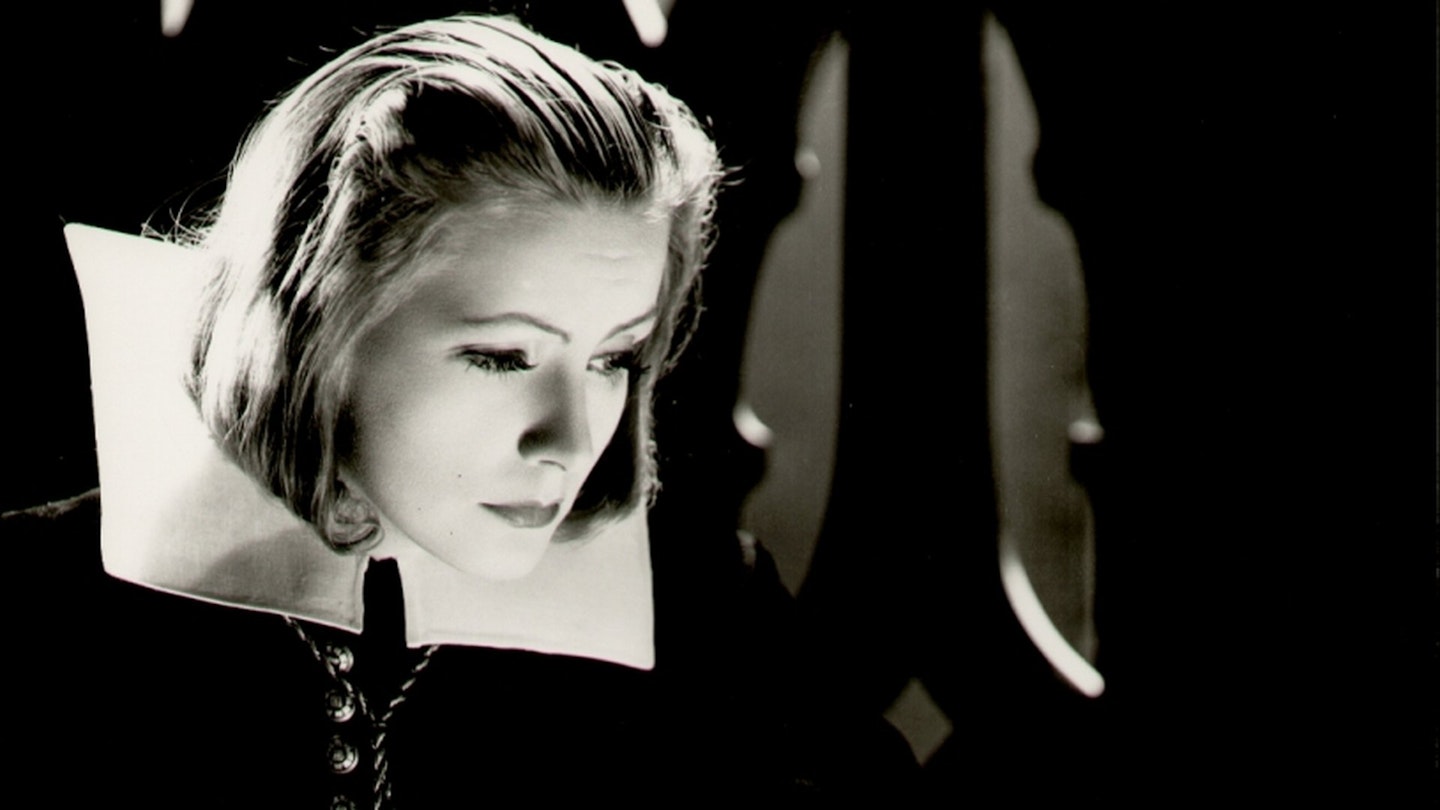Greta Garbo was on sabbatical in Sweden when she first became interested in Queen Christina. Her companion Salka Viertel produced a screenplay that suitably romanticised her unsavoury personality and sanitised her sapphic proclivities and MGM agreed to Garbo's request that Rouben Mamoulian (who had just worked with Marlene Dietrich on Song Of Songs) should be her director and Laurence Olivier her co-star. However, she developed an inexplicable aversion to the British newcomer and, after Leslie Howard had declined the role of the Spanish Ambassador for fear of being upstaged, Garbo rejected Nils Asther, Bruce Cabot and Franchot Tone in preference to her onetime lover and most effective on-screen swain, John Gilbert.
Despite being incensed at having to rehire a man whose career he hoped he had sabotaged, Louis B. Mayer gave this austere historical the MGM prestige treatment. But it lost heavily on his $1,444,000 investment and there were fears that the Divine Garbo was losing her allure.
Yet, despite the sterility of the court intrigue, this critically acclaimed drama boasts one of Garbo's finest performances. She was delightfully mischievous in male disguise during her first meeting with Gilbert - who pulled faces at her off camera to elicit the spontaneous belly laugh that predated Ninotchka's more vaunted, but less convincing guffaw by six years - and she even allowed herself occasionally to be skittishly sensual.
Moreover, she was sublime in the film's two most celebrated sequences, in which she gathered her most cherished memory and then relived it to prevent the awfulness of reality from crashing in upon her. Mamoulian used a metronome to pace Garbo's movements as she drank in the details of the bedroom in which she had just discovered blissful happiness and she responded by caressing and gazing upon each object as though it were pricelessly precious. She then recalled them as she stood in the prow of the ship bound for Spain, although Mamoulian suggested that she maintained a neutral expression so that the audience could speculate about her bittersweet thoughts. Whatever, her motivation, Garbo never again appeared so captivatingly enigmatic or iconically beautiful.
